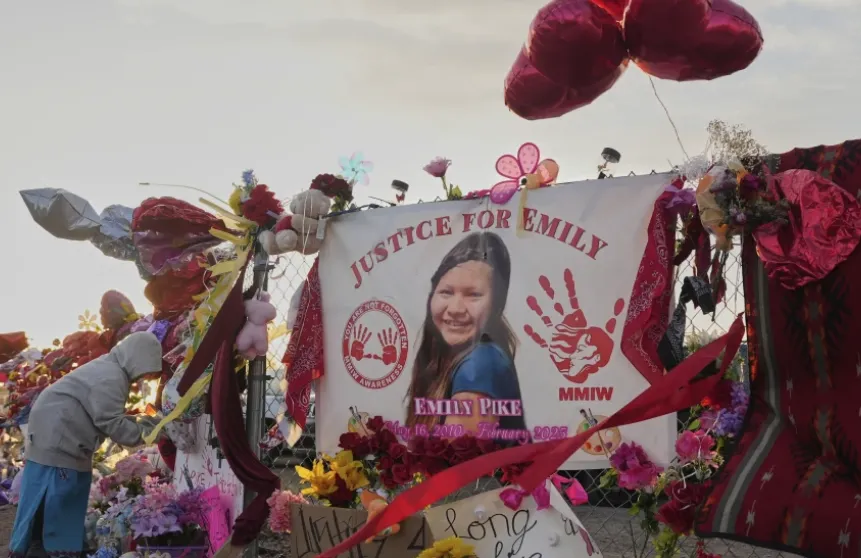
Arizona’s Indigenous Community Demands Action After Alert System Fails in Missing Woman’s Case
PHOENIX (Cherokee411)— Arizona Gov. Katie Hobbs signed legislation Tuesday creating a statewide alert system for missing Native Americans, a long-sought step that comes in the wake of the disappearance and death of Emily Pike, a 15-year-old member of the San Carlos Apache Tribe.
The new system, called the Turquoise Alert, is modeled after successful efforts in states like Washington, California, and New Mexico to quickly broadcast missing Indigenous persons reports via wireless devices, radio, and television. Arizona lawmakers amended the bill to name it “Emily’s Law” in honor of the teen whose body was found in February over 100 miles from the Mesa group home she had left in January.
“It breaks my heart that we, the state of Arizona, didn’t even go looking for this little girl,” said bill sponsor Rep. Teresa Martinez on the House floor. “We cannot let children go missing without somebody being alerted.”
The legislation passed unanimously. Pike’s story has spurred renewed attention to the Missing and Murdered Indigenous Women (MMIW) crisis and exposed painful gaps in how cases are handled — particularly when Native youth are involved in state care systems.
Emily’s mother, Steff Dosela, said she wasn’t notified of her daughter’s disappearance for a full week. Her uncle, Allred Pike Jr., said Friday: “Like my sister says, even though she’s not here with us, she’s still making a difference.”
The FBI and the San Carlos Apache Tribe are jointly offering a $150,000 reward for information leading to the identification of the person or persons responsible for Emily’s disappearance and death. Her remains were recovered by Gila County deputies near the San Carlos Apache Reservation.
Arizona’s Turquoise Alert applies to missing persons under 65, including members of federally recognized tribes, when law enforcement determines the person may be in danger or their disappearance involves unexplained or suspicious circumstances.
The Federal Communications Commission approved a national alert code in 2023 to cover such cases. Indigenous, Black, and Alaska Native communities make up 40% of the country’s missing persons cases, despite being far smaller portions of the population.
Native advocates across the country praised Arizona’s move but said more must be done.
“This is a start, not a solution,” said a statement from the Inter-Tribal Council of Arizona. “Emily’s Law honors her memory — now we must ensure no more Native children go missing without swift action.”
